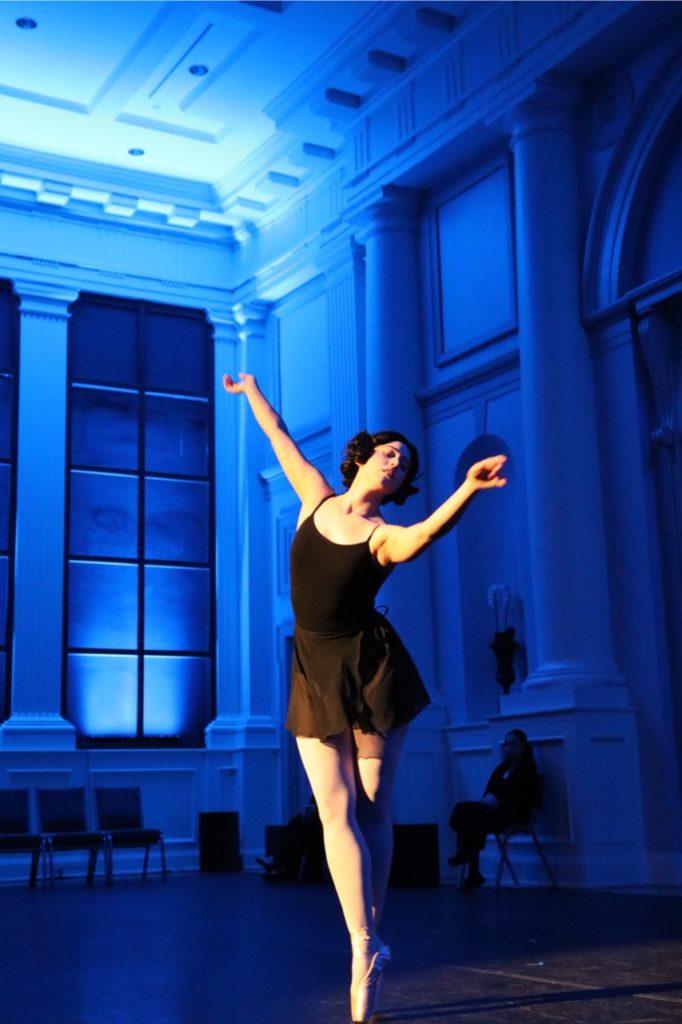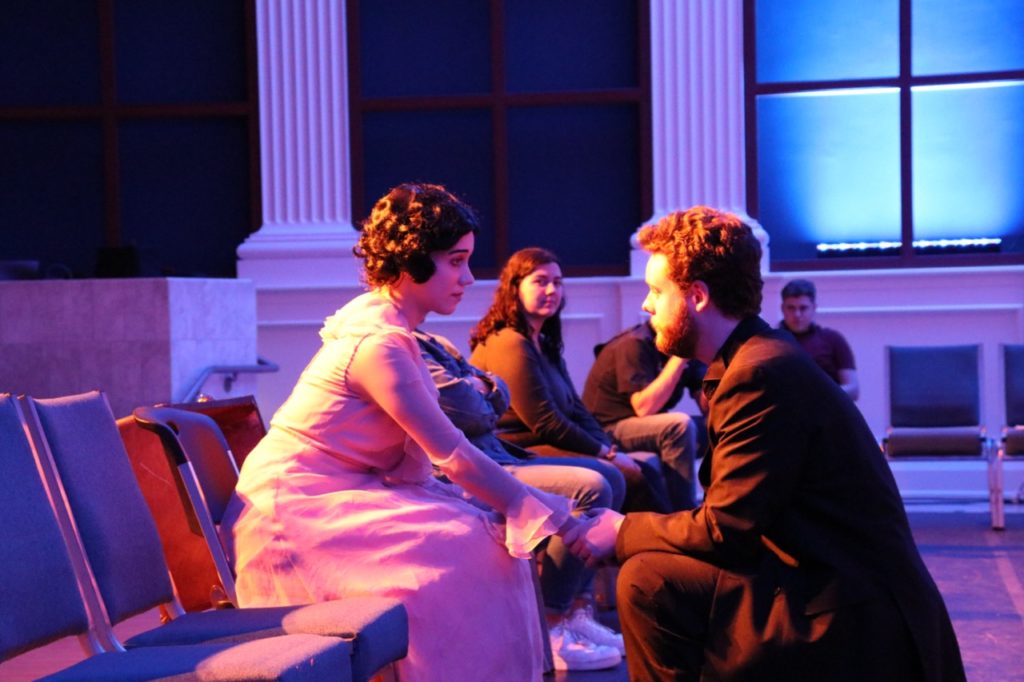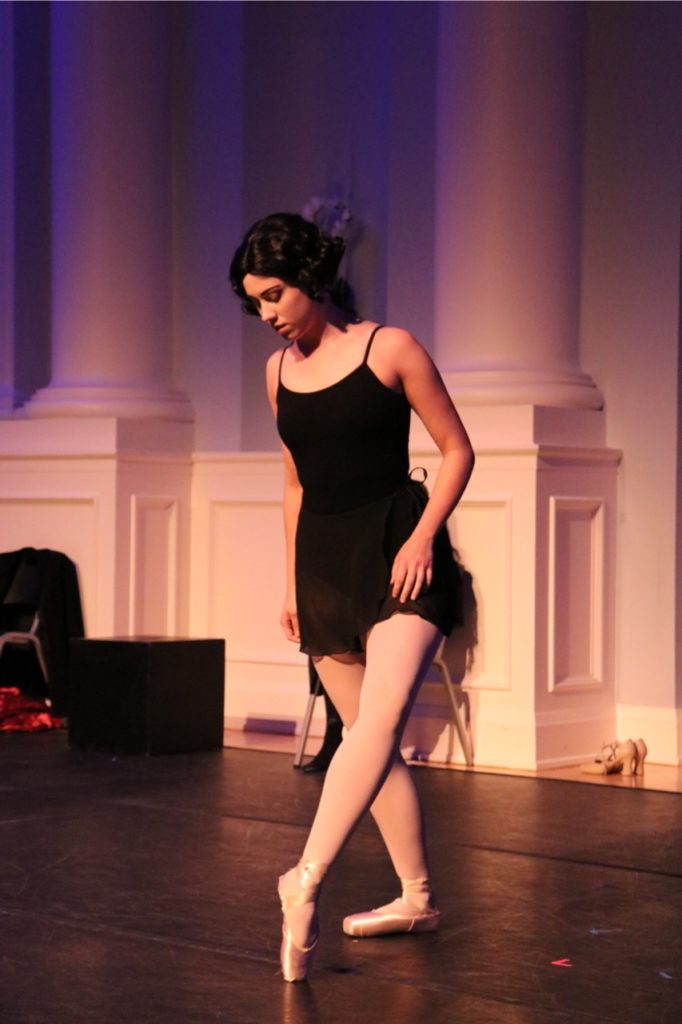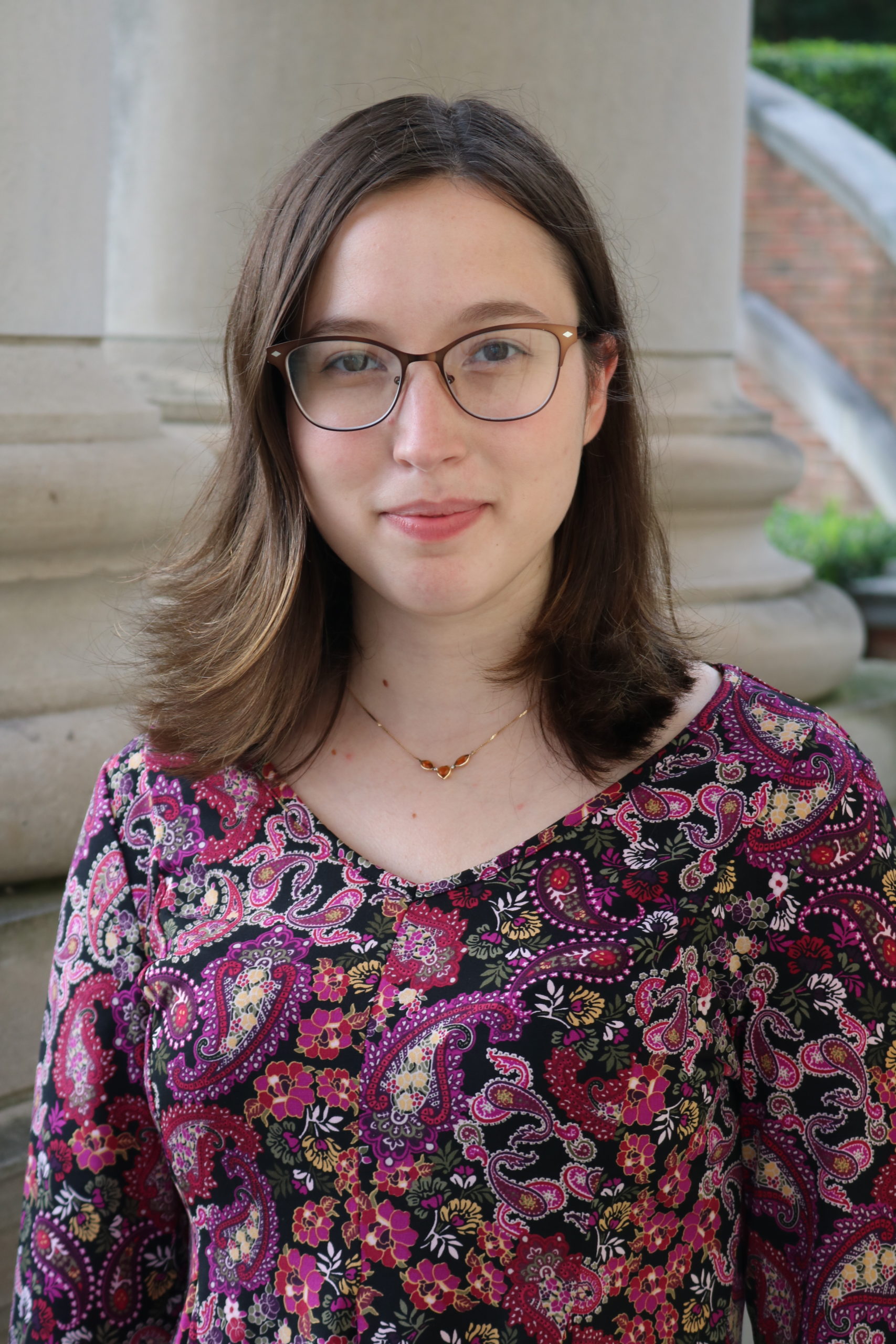On the evening of March 18, Anna Wiley took the stage in Brock Recital Hall as Anna Pavlova, a famous Russian ballet dancer, and the first ballerina to tour the world. Wiley’s memory play, “Swan Song” follows the life and work of a dancer devoted to the promotion of the arts.
“She was really the first person who wanted to bring ballet to a global audience, and she did that by going on tour across the world to as many countries as she could reach,” Wiley said about the subject of her play. “She wanted to make sure that everyone had the chance to experience ballet because she believed dance was a universal art that transcended boundaries of language.”
This play began as a writing assignment for her playwriting class freshman year. Now the play is being performed as part of the Catalyst Festival, and this production serves as Wiley’s senior project as a requirement to graduate from the Samford School of the Arts.
As a ballet dancer herself, Wiley was passionate about incorporating ballet in her senior project.
“I grew up doing ballet so it’s an art form that’s very close to my heart. I’m also passionate about history, so combining my interest in dance and my interest in history in this project has been a lot of fun,” Wiley said. “I was very inspired by Pavlova’s life because she viewed it as her mission to share art with everyone.”
Wiley feels that sharing ballet at Samford will provide an opportunity to break the down barriers that sometimes keep people from engaging with that particular art form.
“In this day and age ballet is kind of considered to be an elitist art form. It’s not something that’s really accessible to a lot of people because there aren’t ballet companies in every city, especially not in smaller places, and tickets tend to cost a lot of money,” Wiley said. “Also because ballet has historically been very eurocentric, it’s not something that all audiences necessarily feel is approachable, and that’s something that Pavlova spent her career fighting against.”
Pavlova’s story is particularly relevant in the age of the COVID-19 pandemic because she exemplified resilience as an artist struggling through difficult circumstances.
“She had to overcome a lot of obstacles in order to share her art,” Wiley said. “Those of us in the arts, particularly in the performing arts, have had a really hard time being able to share our work when we couldn’t gather in person to perform for live audiences. So I think her story is a tribute to the fact that the arts can survive through unprecedented and difficult times.”
While creating this play, Wiley had the opportunity to reach out to the granddaughter of Mikhaill Fokine, the choreographer of Pavlova’s famous Dying Swan solo.
“I actually had the opportunity to speak with Fokine’s granddaughter, Isabelle Fokine, who has worked to preserve his choreographic legacy,” Wiley said. “I got a chance to talk to her about Fokine’s relationship to Pavlova and the history of how this solo was created. I did receive rights from the Mikhail Fokine Foundation to do Pavlova’s original choreography for Dying Swan for part of this project.”
One of the biggest challenges Wiley faced was playing a character she had written herself.
“When I initially wrote this script, I didn’t envision acting it myself, so it’s been really challenging separating myself as an actor from myself as a playwright,” Wiley said. “It’s difficult for me not to become critical of my own writing while I’m trying to memorize lines, and it’s difficult to remind myself that we are at the point in the process where it’s really too late to change anything and I’ve got to let the work just stand on its own.”
In addition to Wiley’s years of work on this play, several other students stepped forward to help her bring it to life. Though faculty advisers offered mentorship throughout the process, the entire project was largely student led.
“This was a very ambitious project,” Wiley said. “I could not have done it without the help of my director, Zoe Clark, whose vision expanded this piece to be more than I could have imagined.”









